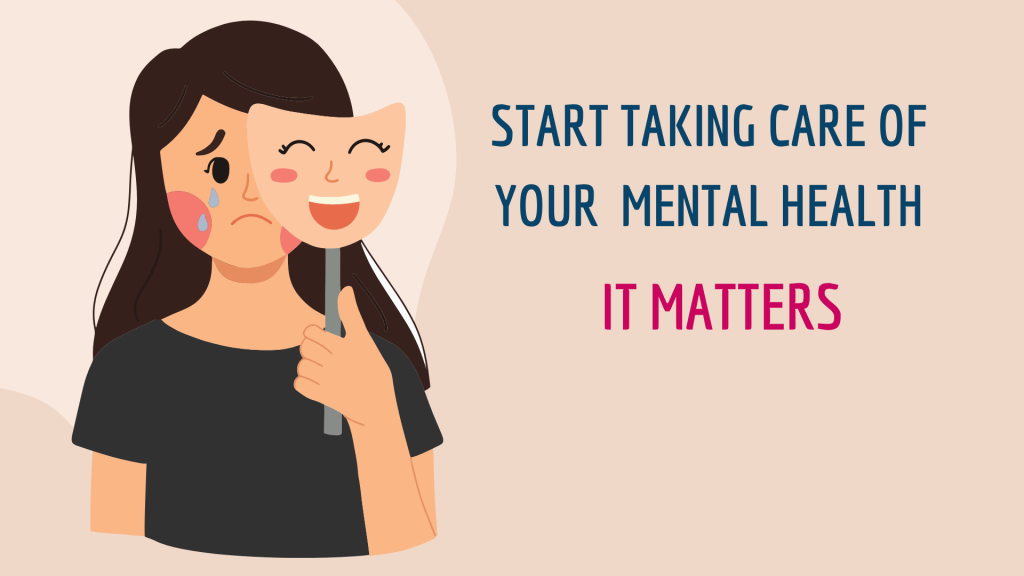Are you Struggling with Mental Health Problems?
According to a survey in Singapore, students had a 62.9% decrease in school performance due to mental health disorders. This data is quite concerning considering the exponential increase of mental health issues in kids. This survey also asserts the importance of mental health in students’ lives.
In various situations you can hit emotional rock bottom, which is perfectly normal .It is essential to realise the importance of figuring out what is hindering your way of progress.
For instance, if you are wounded while playing football, you do not go out and play with an injury; instead, you wait and let it heal till you are healthy to play again.
Similarly, healing emotionally and spiritually involves nurturing one’s inner self and creating a safe space for healing and growth. Only then can we be able to address our emotional wounds.
Why is Emotional Healing Necessary ?
Signs That Indicate the Need for Emotional Healing
Recognizing the patterns that indicate the need for emotional healing is an essential step towards navigating a way out. The common indicators of emotional burnout are:
- Recurring attacks of sadness, anxiety, or hopelessness.
- Difficulty in forming and maintaining healthy relationships.
- Recurring patterns of self-destructive behavior or negative thought patterns.
- Avoidance of emotions or a tendency to suppress feelings.
- Flashbacks or intrusive thoughts related to past trauma.
- Low self-esteem or a lack of self-worth.
- Chronic stress or burnout.
These are some of the major reasons that can indicate signs of mental drain out. Remember, seeking help is a sign of strength and a step towards personal growth.
Steps for Emotional Healing
Unlocking emotional healing involves a series of steps that can help break the patterns and revise them into new and healthy ones. While each person’s path may be unique, there are common strategies and techniques that can support our healing process.
1. Reflect on Yourself
Start by taking the time to reflect on your emotions, experiences, and patterns. Journaling, meditation, or therapy can be helpful tools for self-reflection. Gain a deeper understanding of your emotions and identify any recurring themes or triggers. Walking outside for a walk and surrounding oneself with greenery and silence can help in meditation and rethinking.
2. Acknowledge and Accept Your Emotions
Acknowledge and accept your emotions, experiences, and wounds without judgment. It’s important to validate your feelings and give yourself permission to heal without blaming yourself for it. Our experiences in life become part of our reality, but letting go of the emotions helps us move forward. Conversations in such cases can lead to efficient outcomes.
3. Seek Support from a Trusted Individual
Reach out to a trusted friend, family member, or professional for support. Emotional healing can be a challenging journey, and having a support system can provide guidance and encouragement along the way. Treat yourself with the same level of empathy and understanding that you would offer to a loved one.
4. Release Your Emotions and Let Go
The first step towards letting go is coming out of guilt and shame. Therapy can be helpful in releasing emotional baggage and trauma. These modalities can help you process and let go of negative emotions, creating space for healing and growth. There are situations where past emotions can overburden your subconscious mind.
5. Cultivate Healthy Coping Mechanisms
Replace unhealthy coping mechanisms with healthier alternatives. Engage in activities that bring you joy, such as exercise, creative hobbies, or spending time in nature. Jogging and swimming can be therapeutic in that regard. Stop judging yourself too harshly; instead, consciously remind yourself that you are worthy enough.
Always remember that emotional healing is essential for overall well-being as it enables individuals to address and overcome the impact of past traumas, negative experiences, and ongoing stressors. By engaging in emotional healing processes, individuals can develop resilience, self-awareness, and healthier coping mechanisms. Reach out to a trusted individual, friend, or a professional if you are struggling with any of these problems.








